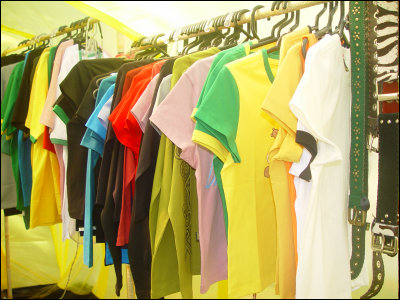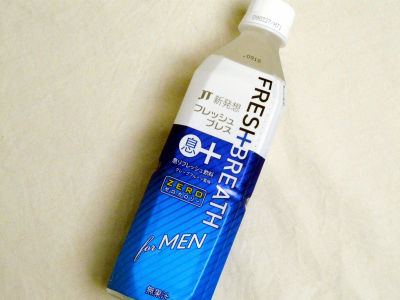Which laundry detergent do chemists choose: liquid or powder?

When you go to the laundry detergent section of the supermarket or search for detergent on an online shopping site, you may be overwhelmed by the number of options and have trouble deciding which one to buy. An expert explains the chemical differences between the major detergent categories of 'liquid detergent' and 'powder detergent' and the advantages of each.
What's the difference between liquid and powder laundry detergent? It's not just the obvious
◆What is detergent made of in the first place?
According to Nathan Kira, a senior lecturer in chemistry at the University of Tasmania in Australia, the active ingredient common to powdered and liquid detergents is 'surfactant.'
Surfactant molecules have two parts, one that reacts with water and one that reacts with oil, which allows the surfactant to lift oil from fabric and form foam.
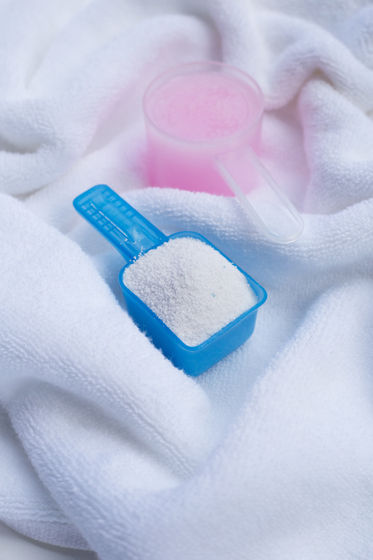
If the water used for washing is hard water, which contains a lot of metal salts such as calcium salts and magnesium salts, the action of surfactants is inhibited and soap scum is caused, so some detergents contain added chemicals such as phosphates, water softeners, and chelating agents, which are 'sequestering agents,' as
However, phosphates have been known to cause problems such as algae blooms, so they are no longer used much in modern detergents.
In addition, detergents contain fragrances that make laundry smell nice, fluorescent whitening agents that absorb ultraviolet light and emit a blue color, making laundry look clean and white, and enzymes that break down protein stains.
◆ Powder detergent
The main ingredients in powder detergents are salts such as sodium sulfate and sodium carbonate. Sodium sulfate adds bulk and prevents the powder from clumping, while sodium carbonate, commonly known as baking soda or washing soda, chemically changes dirt, making it easier to dissolve in water.
Powder detergents also often contain sodium percarbonate, a stable compound of washing soda and hydrogen peroxide, which, when activated by the compound tetraacetylethylenediamine , releases hydrogen peroxide to create a bleaching effect.
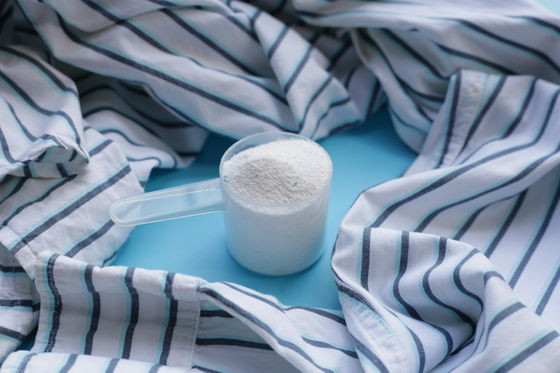
From a chemical point of view, the advantage of powder detergents is that various ingredients can be stably mixed in a solid state. For example, it is possible to add peroxide to powder detergents, which is difficult to add to liquid detergents. Peroxide has the effect of killing microorganisms, so it makes it difficult for mold and biofilm to form inside the washing machine and prevents bacteria from growing on clothes.
Also, while most liquid detergents come in bottles, powder detergent containers are often made from recyclable materials such as cardboard, and because they are light and compact, they are more efficient to transport. Therefore, if you are concerned about the environment, powder detergent is often the better choice.
◆ Liquid detergent
The main ingredient of liquid detergent is water. Other ingredients such as surfactants, alkaline salts, sequestering agents, and water softeners are the same as powder detergents, but liquid detergents have to meet the somewhat difficult requirements of keeping the mixture of these ingredients stable in a liquid state while still providing sufficient effectiveness during washing.
For example, liquid detergents contain preservatives to prevent bacteria from growing inside the bottle.
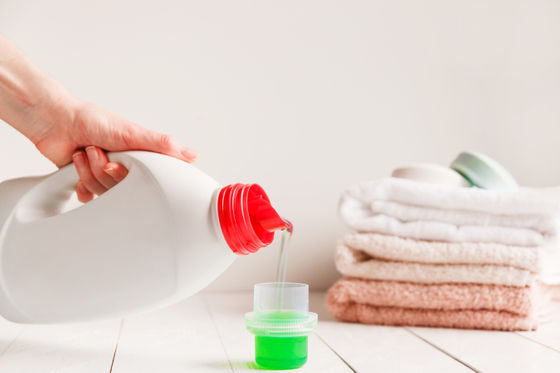
On the other hand, liquid detergents have the advantage that they can use non-ionic surfactants .
Nonionic surfactants do not ionize even when dissolved in water, so they are not affected by water hardness and do not produce soap scum. And because nonionic surfactants are basically liquids, they are not suitable for powder detergents.
Another advantage of liquid detergent over powder detergent is that you can apply it directly to stains before putting them in the washing machine.
◆ Expert's Choice
When choosing a detergent, there are many things to consider, such as its dirt-removing power, price, scent preferences, environmental friendliness, and ease of use.
'Personally,' Kira prefaced her post, 'I wash my clothes in 20-degree water using half the recommended amount of powdered detergent, which comes packaged in recyclable cardboard, contains a variety of enzymes and active peroxides, and has a pleasant scent.'
Related Posts:
in Science, Posted by log1l_ks



